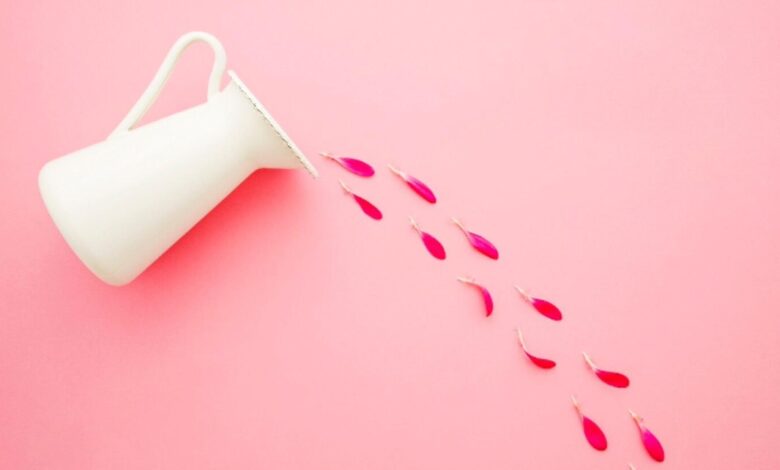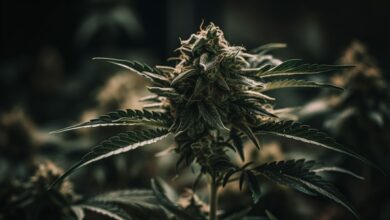Your Ultimate Guide to Safe, Toxic-Free Menstruation Products

From synthetic fragrances to bleach and harmful plastics, many conventional period products contain ingredients that are not only bad for the environment but also harmful to our bodies. In this comprehensive guide, we will explore how making the switch to toxic-free period products can profoundly change your life—improving your health, wellbeing, and even your environmental impact.
Chemical Exposure and Health Risks
The most common toxins in period products are dioxins, which are by-products of the bleaching process used to whiten cotton. Studies have shown that dioxins can cause a range of health issues, including hormone disruption, immune system suppression, and even increased risks of reproductive and certain types of cancers.
Although the level of dioxins in most products is low, the cumulative exposure over time could have detrimental effects. Additionally, many tampons and pads are treated with synthetic fragrances to mask odors, but these chemicals can irritate the skin and mucous membranes.
Repeated exposure to these fragrances can lead to allergic reactions, rashes, or even more severe health problems.
Microplastics: Polluting Our Oceans and Landfills
The microplastics present in synthetic materials like pads and tampons have become a serious environmental concern. These tiny plastic particles do not break down easily and often end up in landfills, contributing to the growing global plastic waste crisis.
As these products decompose, they release toxic chemicals into the soil and water, affecting ecosystems and wildlife.
Toxic Shock Syndrome (TSS)
Toxic Shock Syndrome, a rare but potentially life-threatening condition, has been linked to the use of tampons—especially those made from synthetic materials. TSS occurs when bacteria grow in the tampon and release toxins into the bloodstream.
Switching to organic cotton tampons or a menstrual cup can help reduce the risk of this serious infection.
Allergic Reactions and Skin Irritation
Many people experience irritation, itching, or rashes from the chemicals and synthetic materials in traditional pads and tampons.
These reactions can be especially troublesome for women with sensitive skin. By choosing hypoallergenic, chemical-free period products, you can prevent these uncomfortable side effects.
Environmental Impact of Disposable Period Products
The environmental footprint of traditional menstrual products is alarming. Single-use pads and tampons are often made from a combination of cotton (which can be heavily pesticide-treated), synthetic fibers like rayon, and plastic.
These products are not biodegradable and take hundreds of years to break down in landfills.
In fact, it is estimated that over 45 billion tampons, pads, and pantyliners are used globally each year, contributing to millions of tons of waste.
Additionally, the production of these products involves extensive use of water, energy, and chemicals, all of which negatively impact the environment.
Unsustainable Production: A Burden on the Planet
The production of conventional period products also places a significant burden on the planet’s resources. Cotton farming, one of the primary sources of raw material for many tampons, requires enormous amounts of water, pesticides, and fertilizers.
In fact, cotton is one of the most pesticide-intensive crops in the world. This unsustainable agricultural practice contributes to soil degradation, water scarcity, and pollution.
How Soft organic cotton pads play a role in Toxic-Free Periods?
Conventional period products like regular pads and tampons are often made with synthetic materials like plastic, and may be treated with harmful chemicals, pesticides, or bleach.
These chemicals can irritate the skin, disrupt hormonal balance, or even have long-term health risks. Organic cotton pads, however, are made from cotton grown without synthetic pesticides or fertilizers, ensuring a more natural, chemical-free option.
These Organic cotton heavy flow pads are naturally breathable and hypoallergenic. It allows air to circulate, reducing the risk of irritation, rashes, and infections (like yeast infections or bacterial vaginosis) that can occur when synthetic materials trap moisture against the skin.
The softness of organic cotton also ensures a more comfortable experience throughout your period.
How to Make the Switch to Toxic-Free Period Products?
If you’ve been using traditional pads or tampons for years, it may be easier to start by switching just one product. Try an organic cotton tampon or pad for a few cycles and see how your body responds.
If you’re ready to take your sustainable period care to the next level, consider trying a menstrual cup. This reusable, eco-friendly alternative holds more liquid than tampons, is long-lasting, and significantly reduces waste. Plus, it can be worn for up to 12 hours without needing to be changed.
For those who prefer pads, cloth pads are a great alternative. These reusable pads are made from natural materials like cotton or hemp and can be washed and reused for years. Period underwear is another great option for a comfortable, sustainable period experience.
As with any change, it’s important to do your research. Look for reputable brands that prioritize organic materials, certifications, and transparency in their product ingredients. Many companies offer sample packs, so you can try different products to see what works best for your body.
Conclusion
By eliminating harmful chemicals from your menstrual care routine, you not only improve your wellbeing but also contribute to a more sustainable and eco-friendly future. With so many safe, natural, and reusable options available today, there’s no reason not to make the change.



